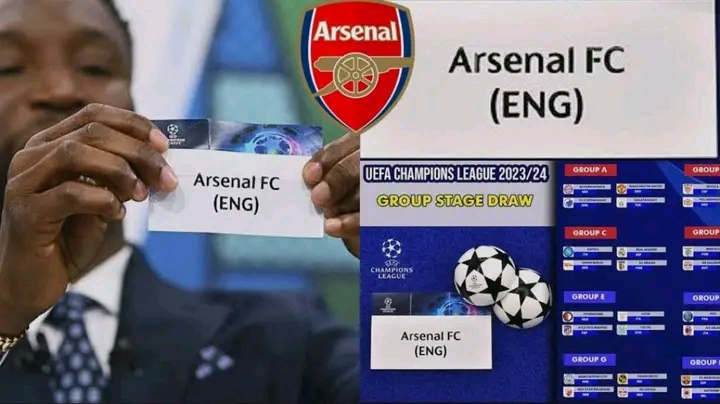The 2024-25 UEFA Champions League season will bring about a major transformation in its format, shifting away from the traditional group stage to a new, more expansive 36-team single-group structure.
This new format, designed to extend the group stages, allows more clubs to participate, resulting in an increase in the number of high-stakes matches.
This season marks the 70th edition of Europe’s premier club competition and the 33rd since it was rebranded as the UEFA Champions League.
The tournament began on July 9, 2024, and will conclude with the final in Munich, Germany, on May 31, 2025.
Reflecting on last season, Real Madrid clinched their 15th Champions League title, further cementing their dominance in European football, as it marked their sixth title in the past eleven years.
Notably, Real Madrid set a record for having the most perfect group-stage campaigns, having won all their group matches on three different occasions.
Carlo Ancelotti, the mastermind behind Madrid’s success, has now matched the record for the most Champions League titles won with a single team.
Ancelotti has five titles to his name—two with AC Milan (2003 and 2007) and three with Real Madrid (2014, 2022, and 2024).
His five-title tally brings him level with legends like Bob Paisley of Liverpool and Zinedine Zidane, who also won three titles with Madrid.
Another standout from the previous season was Borussia Dortmund, who made an unexpected run to the final.
Their journey included victories over Atletico Madrid in the quarter-finals and Paris Saint-Germain in the semi-finals.
However, they were narrowly defeated by Real Madrid in the final.
Premier League clubs experienced mixed results last season.
Both Manchester United and Newcastle United were eliminated during the group stages, while Arsenal and Manchester City advanced to the quarter-finals, only to be ousted by Bayern Munich and Real Madrid, respectively.
This season, the Champions League will adopt a new format known as the “Swiss Model,” where the traditional group stage structure of eight groups of four teams will be replaced by a single league format featuring 36 teams.
In this format, each team will play eight matches—four at home and four away—against opponents drawn from different pots.
These pots are determined based on the teams’ UEFA coefficients, with the top pot reserved for the reigning champions and other highly ranked clubs.
Once the league phase concludes, the top eight teams will automatically advance to the Round of 16.
Meanwhile, teams that finish between 9th and 24th place will enter a two-legged knockout play-off to secure the remaining spots in the Round of 16.
Teams that finish 25th or lower will be eliminated from European competition for the season.
This new format will significantly increase the number of matches, rising from 125 in the current season to 189 in the upcoming season, making it the most extensive Champions League campaign in history.
For the knockout phase, the standard points system will apply, with three points awarded for a win and one point for a draw.
The top eight teams from the league phase will progress directly to the Round of 16, while teams ranked 9th to 24th will compete in knockout play-offs.
The tournament will follow the traditional knockout format in the final stages, culminating in the final, which will be held at a neutral venue selected by UEFA.
All matches, except the final, are scheduled for midweek to fit around domestic league fixtures.
As the qualifying rounds are currently underway, teams like Brest from Ligue 1 and Girona from La Liga are set to make their European competition debuts.
Due to their strong performances in last season’s UEFA competitions, Germany and Italy have earned additional spots in this year’s tournament.
Pot 1 for the group stage draw will feature some of the top clubs in Europe, including Real Madrid, Manchester City, Bayern Munich, Paris Saint-Germain, Liverpool, Inter Milan, Borussia Dortmund, RB Leipzig, and Barcelona.
In contrast, Pot 4 will include teams such as Monaco, Aston Villa, Bologna, Girona, VfB Stuttgart, Sturm Graz, and Brest.
The draw for the group stage is scheduled for August 29, with tickets for the group phase becoming available once the fixtures are confirmed.
Looking ahead, Manchester City remains one of the top contenders, having maintained high standards over recent years, although they have only won the Champions League once during this period.
Key players like Phil Foden and Erling Haaland are expected to play vital roles, with Kevin De Bruyne’s return to form potentially boosting City’s chances.
Real Madrid, with their impressive history, including two Champions League titles in the past three seasons, have bolstered their squad by signing Kylian Mbappe for the upcoming season, adding even more firepower to their attack.
Inter Milan, despite operating on a more modest budget, have consistently performed well under Simone Inzaghi.
Their success will largely depend on Lautaro Martinez, a key figure in their European campaign.
Arsenal and Bayer Leverkusen are also teams to watch.
Arsenal, following a competitive season, will need to improve their performance in the knockout stages to advance further.
Bayer Leverkusen, under the guidance of Xabi Alonso, had an exceptional 2023/24 season, winning a domestic double and nearly achieving a treble.
They are poised to make a significant impact in Europe this season.
Overall, the 2024-25 UEFA Champions League season promises to be one of the most thrilling and competitive yet, with the new format and the high caliber of teams participating.
